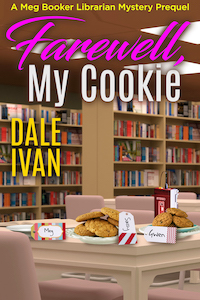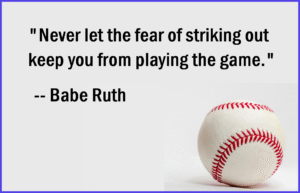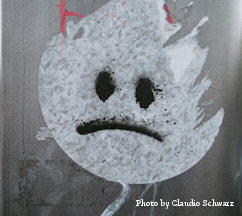Emotion is at the heart of what makes fiction connect with a reader. People read for various reasons, but feeling suspense, or romantic love, or a sense of wonder, or the suspicion arising from a mysterious crime, etc., and sometimes several of these at the same time, is a big part of what keeps a reader turning pages. Wanting to experience those feelings vicariously with the characters, and at the same time, experiencing the tension when those feelings are withheld or jeopardized by conflict.
In today’s Words of Wisdom excerpts, Joe Moore looks at how to create empathy so your reader will become attached to those characters, Clare Langley-Hawthorne discusses the importance of proving emotional resonance for the reader with your characters, and Laura Benedict considers the connection readers have to us via our fears.
All the posts are worth reading in full, and are linked from the date at the bottom of each excerpt.

So if empathy is the key to your reader becoming attached to your characters, what is a proven method for creating emotions?
Let’s say you want your character to be afraid—to experience fear. You could always just tell the reader that he or she is scared. That would mean little or nothing because not only is it telling, it paints an unclear picture in the mind of the reader. Scared could mean a 100 different things to a 100 different people. Now ask yourself what it felt like when you’ve experienced fear. Perhaps you were in a parking garage late at night. The sound of your high heels seemed as loud as hammer strikes. The shadows were darker than you remembered. You could see your car but it appeared miles away. Then you hear someone cough. But there’s no one around. You pick up the pace. Your heels become gunshots. You shift your gaze like a gazelle that sensed a stalking big cat as you hug your purse to your chest. Your pulse quickens. Breathing becomes shallow and frantic. Palms sweat cold. Legs shake. You press your key fob and your car’s lights flash but your vision blurs. You hear a strange cry escape your throat—a sound you’ve never made before. Your car is only yards away but you don’t feel like you’re getting closer. Were those your footfalls echoing off concrete walls or were they coming from the shadows? You reach for the door handle, your hand shaking, fear gripping you like a cloak of ice.
Here’s my point. It may not have been in a dark parking garage late at night but we’ve all felt it. Paralyzing, heart-stopping fear. In your story, you need to have your character feel the same. Describe it so that your reader will empathize. So that their hands will shake and their chest will tighten. Make them sweat, even if it’s only in their imagination. Approach every emotion your characters feel in the same manner. Use your life experience. How did you feel the first time you felt love, hate, jealousy, rejection. If you are honest in expressing true emotions through your characters, your reader will have empathy for them, and very possibly come to list them as their all-time favorite.
Joe Moore—August 3, 2016
Almost every book I’ve failed to finish or which has left me disappointed, has failed because I haven’t been able to care enough about the characters. Even in books where the plot has become thin or events have stretched credulity, emotionally deep and resonant characters have kept me reading.
In some ways, the process of providing emotional resonance mirrors the way a writer describes a character because it focuses on the feelings the character inspires in a reader. Those feelings don’t have to always be warm and fluffy, but they do need to strike a chord with a reader. The most powerful characters stay with a reader long after the book is finished.
All too often at writing classes or conferences the pieces that I’ve read or critiqued have had one major failing – the characters themselves. They are often flat on the page, cliched or simply do not ring true. So how do you create emotionally complex, relatable and ultimately resonant characters? Maybe the best starting point is to identify what not to do and work up from there.
Many new writers may feel the urge to create a quirky, one-of-a-kind character or perhaps they hope to create characters similar to those that have proven most popular in their genre (here’s where the recovering alcoholic, down at heel PI often comes into play). In either case, a writer should beware of using standard character tropes and cliches as well as going too far the other way by creating the most ‘out there’ character who sounds nothing like anyone a reader would ever meet in real life. if a character is nothing more that a series of quirks or tics then a reader is going to be just as dissatisfied as if the character is little more than a carbon copy of the stock-standard genre character. The key is (I think) to get into the head and emotions of a character in a way that displays the writer’s own unique perspective. In some ways, perhaps you have to place a little of yourself in each character (maybe not in a literal sense but certainly in an emotional sense).
Striking a chord in readers can be tricky as each reader also brings their own perspective, background, and emotions to the books they are reading. One character’s actions may pack an emotional punch for some readers and yet leave others cold. I find, for example, that parents in books often pack a huge emotional whallop for me, especially in books like Wonder or The Fault in our Stars. If I’d read these books when I was younger, I suspect different characters would have evoked a very different kind of emotional reaction. Yet there are some universal truths out there and characters that evoke strong emotions will go on to have wider resonance.
It’s hard to provide any kind of definitive ‘tip list’ for creating this kind of emotional resonance, simply because it is an illusive target (we only know it when we feel in the gut) but I think some of the elements include:
- Going deep within a character’s psyche to understand their motivations;
- Drawing upon your own past experiences and interactions to add depth;
- Using action as well as interaction to draw out a character rather than description alone (this helps readers experience a character rather than just reading about them in a static sense);
- Finding the humanity within all the characters (even your villains);
- Exploring the inhumanity within all your characters (we all have weaknesses and foibles, prejudices and flaws that make us who we are – even if we’re not proud of them);
- Looking for the universality of experience that strikes a chord in you the writer as you describe your characters and take them on their unique journey through your book;
- Avoiding thinking or describing characters in terms of what they should be but rather what they are – try to step back from relying on conventions or mimicking other writer’s characters and remember no one is superhuman or a psychopath in their own mind.
Clare Langley-Hawthorne—August 15, 2016
When we write about things that frighten us, chances are there will be lots of readers who share our fears. We can exploit (terrible word, but I mean it in the nicest way) those fears and redeem ourselves through characters that may suffer for a while, but journey to overcome their fears or terrifying situations.
As humans we all have fears. They don’t have to be big, bloody fears, or deeply felt emotional fears to propel or inspire a story. They can be as small as a spider or as microscopic as damaged chromosomes. Resonance is the important thing.
Here’s a list of fears that immediately spark stories of all sorts for me:
Fear of death.
Fear of being submerged in water.
Fear of my embarrassing secrets being revealed in public.
Fear of losing a child.
Fear of being blackmailed.
Fear of being taken advantage of.
Fear of success.
Fear of being a failure.
Fear of a bug crawling in one’s ear or nose.
Fear of being watched in a lighted house from the darkness outside.
Fear of being pulled over by a fake cop on a lonesome road.
Fear of being mistaken for a criminal.
Fear of home invasion.
Fear of the apocalypse.
Fear of snakes in the house.
Fear of roaming packs of dogs.
Fear of being watched through a computer’s camera.
Fear of being kidnapped.
Fear of a child being hurt or being killed by one’s carelessness.
Fear of being judged and found wanting.
Fear of being too happy, because it can’t last.
Fear of one’s eye(s) being gouged out.
Fear of the supernatural.
Fear of random violence.
Fear of cancer.
Fear of loving too much.
Fear of poverty.
Fear of seeing open, bleeding wounds.
Fear of corpses.
Fear of being wrong.
Fear of betrayal.
Fear of snarky groups of teenage girls.
Fear of being vulnerable.
Fear of losing a lover.
Fear of losing a friendship.
As you can see from the list, many of these fears are close to being universal for humans. Readers always want to discover things in stories that they can identify with. It’s all about the resonance, and not so much about the shock value.
Laura Benedict—January 24, 2018
***
Now it’s your turn to weigh in about creating and connecting emotions with your readers.
- Have you drawn directly on your life experience to help create emotion? Any tips on drawing on your life?
- How important is forging emotional resonance with your characters to you? As a reader, how important is it to experience?
- What fears spark or drive stories for you? Any that weren’t listed above?
***
You can join my reader group and receive a brand-new Meg Booker prequel novella.

Newly-hired librarian Meg Booker expects the extra two hours the library is open to be a piece of cake. Instead, she finds herself confronted by a mystery involving cookies.
December, 1984. Fir Grove Library, Portland, Oregon: Feathered hair. Cowled sweaters. Instant cameras. Meg has volunteered to work late at the branch during the Christmas festival. Families throng the library, looking to find items for the community treasure hunt. All goes well until odd behavior by a few patrons raises her curiosity. When cookies go missing, Meg realizes she’s stumbled into a mystery and decides she must solve it, even if it means joining the community treasure hunt and racing to the finish.
Farewell, My Cookie is a prequel novella to the Meg Booker Librarian Mysteries—a cozy library mystery series set in the 1980s.













 Last night, my husband and I went to a pumpkin festival with another couple. The town blocks off downtown’s main drag, and skeletons, witches, monsters, live music, and laser shows filled the streets.
Last night, my husband and I went to a pumpkin festival with another couple. The town blocks off downtown’s main drag, and skeletons, witches, monsters, live music, and laser shows filled the streets.


